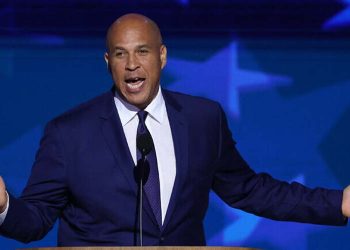Former President Donald Trump is barred from returning to the White House, say some opponents who argue his role in the Jan. 6, 2021, Capitol attack amounts to supporting an “insurrection” as defined by the 14th Amendment of the U.S. Constitution.
Here’s a look at the legal theory and its long-shot chances of blocking the front-runner for the Republican presidential nomination from the November 2024 ballot.
How could Trump be disqualified?
Some legal experts say Trump’s Jan. 6 actions disqualify him for the presidency. They cite his fiery speech to supporters who then stormed the Capitol in a failed bid to stop Congress from certifying Democratic President Joe Biden’s election.
They cite Section 3 of the post-Civil War 14th Amendment, which bars government officials who have “engaged in insurrection or rebellion” from holding office.
Has Trump been convicted of inciting insurrection?
The House of Representatives in Trump’s second impeachment charged him with inciting an insurrection on Jan. 6, but Senate Republicans narrowly sustained enough votes to acquit him.
He is now awaiting trial on four criminal indictments, including two related to his efforts to overturn his 2020 defeat, which he falsely claims was the result of fraud.
Trump has not been charged with insurrection or rebellion.
Some legal experts say efforts to disqualify Trump could set a troubling precedent that would empower state election officials to unilaterally disqualify candidates based on their own interpretations of “insurrection or rebellion.”
Disqualifying candidates based on crimes they have not been convicted of, or even charged with, could run afoul of their rights to due process and equal protection, which are also enshrined in the 14th Amendment.
How would disqualification work?
Section 3 has no clear enforcement mechanism. Some legal scholars say it would require an act of Congress to put it into effect. Others say state election officials are bound to apply it when considering candidates for the ballot and can be compelled to do so by court order.
Voters and groups representing them would need to persuade secretaries of state across the 50 states – many of them elected Republicans and Trump allies – to determine Trump is disqualified or to persuade judges to bar them from putting Trump on the ballot.
For the maneuver to succeed, its proponents would need to persuade officials in enough Republican-leaning states to block Trump from the ballot that he would be denied the 270 Electoral College votes needed for victory.




































